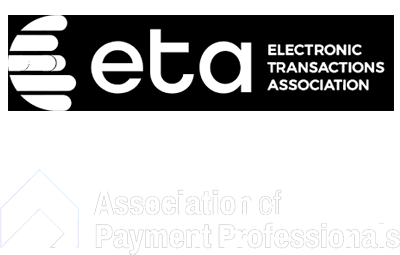08 Mar

Suppose you own a business and are focused on encouraging growth. In that case, the best approach is to provide your clients with different payment methods. Suppose you decide to accept credit card payments. In that case, you should do so strategically to benefit the business. The first step retailers take before accepting credit and debit card payments is getting a merchant account from a provider. Once you get the right merchant account provider, send an application and await approval.
Let’s explore what a merchant account is and its importance in the business sector.
What is a merchant account?
In layperson’s terms, a merchant account is a type of bank account that allows owners to accept credit or debit card payments. The merchant account helps promote close relations between merchant services providers and retailers.
When a firm opens a merchant account, it is designated as a temporary holder for settled credit or debit card transacted funds. The cardholder’s bank sends the funds directly to the organization’s merchant account after following the transaction step by step. After processing, the merchant service provider deposits the money into individual business accounts.
The merchant account should be distinct from the business account; you cannot merge the two. Before applying for a merchant account, you need to set up a standard business account. A merchant account is a mutually agreed upon the place where transactions are held, and each respective party takes reasonable fees.
Types of merchant accounts
Merchant accounts exist in three categories.
Dedicated merchant accounts
A dedicated merchant account is set up directly with the bank. It exposes the clients to greater control over when your money is paid to you and allows you to negotiate rates specific to your business.
The aggregate merchant accounts
An aggregated merchant account is a service offered by a payment facilitator (PF). It is often the best choice of merchant services for small businesses. A PF recruit’s merchants on behalf of the acquiring bank. They are re-sellers — like a travel agent who sets you up with a hotel and takes a tidy cut of the room fee as payment.
High-risk merchant accounts
As the name suggests, home businesses may struggle to get approved for a merchant account from mainstream providers because they’re considered “high-risk. “If this is the case for your business, don’t be offended, it’s (probably) nothing personal.
How to get a merchant account?
Getting a merchant account is a tiring process, but it’s reasonably easy to accomplish when preparedness meets due diligence.
You’ll need to have a variety of assets to open a merchant account. However, they may give you more leeway if you have a longstanding relationship with the bank or financial institution. Keep in mind that banks usually work with third-party providers, though, and you may end up paying more than you should due to kickback rates existing between parties. Ask specifically who they work with and why, and then do your research on those companies separately.
Similar to banks, some ISOs will charge extra fees on the backend so they can pitch enticing processing rate offers on the front end. Be careful of this! Low rates are only worth it if silly fees and lengthy contracts recover the savings.
Good MSPs are more flexible, save you time, help with PCI compliance, help fight chargebacks, have better or proprietary hardware, and make it their mission to partner with you. MSPs rarely require you to have multiple merchant accounts across card networks. In contrast, banks and some ISOs will (depending on their partners).
Choosing the best merchant services provider
Analyzing requirements from a merchant services provider’s perspective is insightful. The financial institutions invest time and money into creating awareness on the subject of opening merchant accounts, equip retailers with hardware, recommend or install POS systems, among others. They do this as a show of solidarity to businesses and a great sign of support for future success.
Merchant service providers like Banks earn from the money incurred from transaction fees. When retailers accept credit card charges, they automatically make money for both themselves and the financial institutions that issue the cards being used. Hence, financial institutions are invested since they want to ensure retailers are a suitable fit for them and their brand.
For instance, some merchant service providers will only endorse firms’ certain amounts each month, while others specialize in working with new businesses. Retailers have a responsibility of carrying out research to identify which merchant service providers are a great fit for their company depending on their output.
Furthermore, retailers should be keen in analyzing terms of service so as not to be disadvantaged by the rules and regulations that are imposed by the financial institutions.
Retailers should keep in mind the weaker weakness due to lack of information can be exploited by financial institutions thus depriving them of the best deals because of being taken advantage off. However, when you become focused and seek knowledge you can use the knowledge to determine the deals you get by being well informed about the industry.
The first test of customer service comes starts with how your chosen merchant services provider guides you through this process of getting a merchant account. During the sales process, you be alert and very eager to learn. If you get a poor experience do not consider them and just move to another merchant service provider that suits you. This is because the earlier you identify compatibility with a merchant provider the better for your business performance.
How to open a merchant account
Now that you know what a merchant account is, you also need to learn how to open one. First, you need to gather the relevant details to get an accurate quote.
Banks will need information on the following:
- What you sell and how you sell it. I.e., the nature of your operations.
- Total monthly fees for card payments or forecast turnover for new organizations.
- The typical transaction size for clients.
- A credit check to ascertain eligibility.






